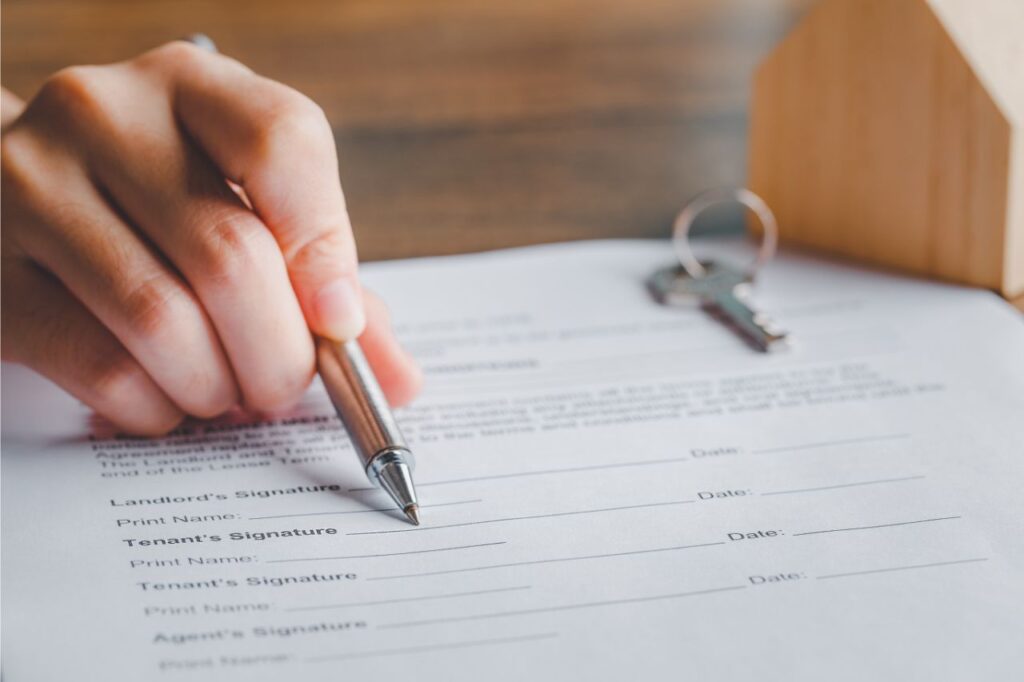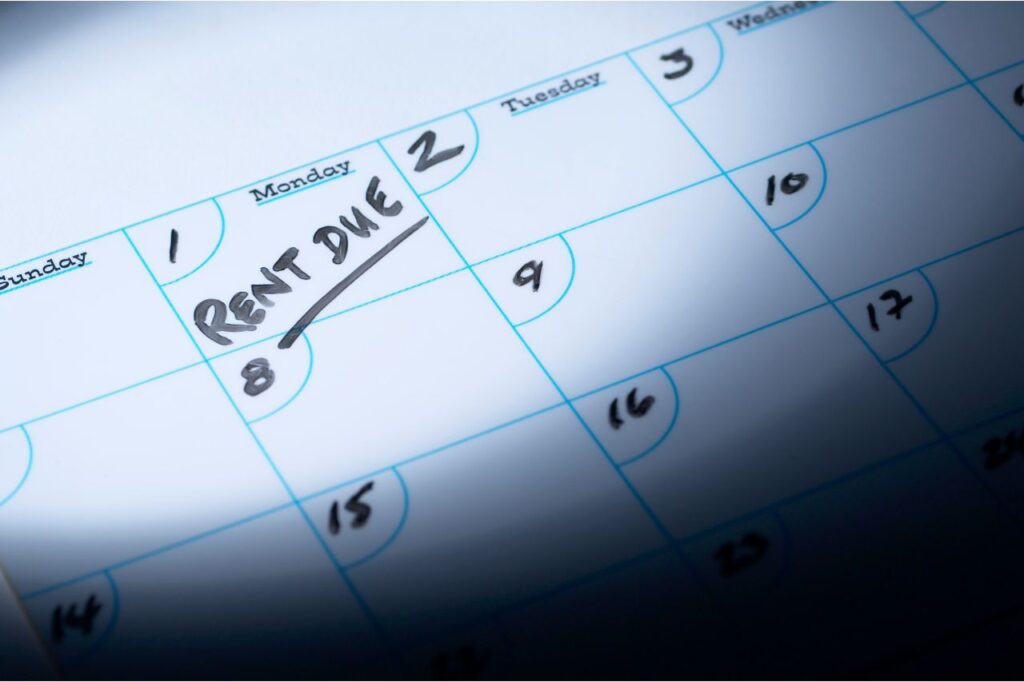Here at Property Plus, we understand that navigating the rental market can be challenging for both tenants and landlords. Understanding and addressing common issues can help maintain a harmonious relationship between both parties. As one of Wellington’s leading property management agencies, a big part of our role is ensuring good communication between landlords and tenants, taking the stress away from both parties and using our expertise to ensure a smooth relationship.
Of course, if you are managing your own rental property or you are a tenant dealing directly with your landlord, this can be challenging at times. Let’s explore how to tackle tenant troubles and ensure a smooth landlord-tenant experience in New Zealand.
Communication is Key
Maintaining a positive and functional landlord-tenant relationship is critical to a smooth renting experience. Addressing common issues promptly and effectively can make a significant difference. Whether you are a tenant struggling with maintenance delays or a landlord facing rent arrears, knowing your rights and responsibilities is essential.
In this guide, we’ll cover the most common issues faced by tenants and landlords, offering practical solutions and valuable insights to help you manage these challenges.
Common Issues Faced by Tenants
Renting a property comes with its own set of challenges. Here are some of the most common issues that tenants face in New Zealand and their corresponding rights under the law.
Maintenance Delays
One of the most frequent complaints from tenants is the delay in addressing maintenance issues. This can range from minor repairs to significant problems affecting the habitability of the property.
Tenant Rights:
- Under the Residential Tenancies Act, landlords are required to maintain the property in a reasonable state of repair.
- Tenants have the right to request repairs and expect them to be carried out in a timely manner.
Solutions:
- Keep a record of all maintenance requests and follow up regularly.
- Communicate clearly with your landlord about the urgency of the repair.

Rent Increases
Unexpected rent increases can be a significant source of stress for tenants. Understanding the legal framework surrounding rent hikes can help you respond appropriately.
Tenant Rights:
- Landlords must provide written notice of any rent increase at least 60 days in advance.
- Rent increases are limited to once every 12 months.
Solutions:
- Review your tenancy agreement to understand the terms related to rent increases.
- If you feel the increase is unjustified, you can challenge it through Tenancy Services.
Noise Complaints
Living in close proximity to others can sometimes lead to noise disputes. Knowing your rights and how to handle these situations can help maintain a peaceful living environment.
Tenant Rights:
- Tenants have the right to quiet enjoyment of their rental property.
- Excessive noise that disrupts your daily life can be grounds for complaint.
Solutions:
- Document instances of excessive noise and report them to your landlord.
- If the issue persists, you may need to involve local authorities or mediation services.
Common Issues Faced by Landlords
Managing a rental property can bring its own set of challenges. Understanding the common issues that landlords encounter can help you navigate these hurdles effectively.
Maintenance and Repairs
- Landlords are responsible for ensuring that their properties are maintained in a habitable condition.
- Delays in addressing maintenance issues can lead to larger problems and tenant dissatisfaction.
Solutions:
- Establish a routine maintenance schedule to identify and address potential issues before they escalate.
- Build a good relationship with reliable contractors and maintenance services for timely repairs.
Tenant Screening
- Finding the right tenants is vital for minimising future complications.
- Poor tenant choices can lead to non-payment of rent or property damage.
Solutions:
- Implement a thorough tenant screening process, including background checks and referencing past landlords.
- Clearly outline your expectations in the tenancy agreement to set the tone for a respectful landlord-tenant relationship.

Rent Collection
- Collecting rent on time is essential for cash flow but may sometimes lead to disputes.
- Understand the best practices for handling late payments or non-payment scenarios.
Solutions:
- Offer multiple payment options to tenants and establish clear consequences for late payments.
- Create a system for tracking payments to stay organised and minimise misunderstandings.
Landlord-Tenant Communication
Effective communication is key to resolving issues amicably and maintaining a positive landlord-tenant relationship. Here are some strategies for improving communication.
Establish Clear Channels
Having clear communication channels can prevent misunderstandings and ensure that both parties are on the same page.
Tips:
- Use formal methods such as email for important communications to keep a record.
- Establish preferred communication methods early in the tenancy.
Regular Check-ins
Regular check-ins can help identify and address issues before they escalate.
Tips:
- Schedule periodic inspections to discuss any problems and ensure the property is well-maintained.
- Encourage open dialogue about any concerns or upcoming changes.
Conflict Resolution
When conflicts arise, handling them promptly and professionally can prevent them from escalating.
Tips:
- Approach conflicts with a problem-solving mindset.
- Consider mediation services if direct communication fails to resolve the issue.
Tips for Maintaining Rental Properties
Both tenants and landlords play a role in maintaining the rental property. Here are some tips to ensure a pleasant living experience and prevent issues.
For Tenants
Taking care of the property can help maintain a good relationship with your landlord.
Tips:
- Report maintenance issues promptly to prevent further damage.
- Follow the terms of your tenancy agreement regarding property care.
- Keep the property clean and tidy to avoid attracting pests.
For Landlords
Proactive maintenance can prevent costly repairs and keep tenants satisfied.
Tips:
- Conduct regular inspections to identify and address potential issues early.
- Invest in quality fixtures and fittings that require less frequent repairs.
- Respond promptly to maintenance requests to show tenants you value their comfort.
Shared Responsibilities
Some maintenance tasks require cooperation between tenants and landlords.
Examples:
- Pest control may require tenants to keep the property clean and landlords to arrange professional services.
- Gardening and outdoor maintenance can be shared responsibilities, as outlined in the tenancy agreement.
Legal Framework and Resources
Understanding New Zealand’s residential tenancies law can help both tenants and landlords know their rights and responsibilities.
Residential Tenancies Act
The Residential Tenancies Act governs rental relationships in New Zealand, providing a legal framework for resolving disputes.
Key Points:
- The Act outlines the rights and responsibilities of both tenants and landlords.
- It provides mechanisms for resolving disputes through Tenancy Services.
Tenancy Services
Tenancy Services offers resources and support for both tenants and landlords.
Resources:
- Dispute resolution services, including mediation and tribunal hearings.
- Information on rights and responsibilities under the Residential Tenancies Act.
Additional Help and Information
For more specific issues, there are additional resources available.
Where to Find Help:
- Community Law Centres provide free legal advice and support.
- Citizen’s Advice Bureau offers guidance on a wide range of tenancy issues.
Conclusion
Addressing common issues early, maintaining open communication, and respecting each other’s rights and responsibilities are key to a positive landlord-tenant relationship. By understanding the challenges and taking proactive steps to manage them, both tenants and landlords can enjoy a smoother, more harmonious rental experience.
If you need further assistance or professional advice, consider reaching out to local resources or engaging with property management services like Property Plus. Together, we can create a rental market that works for everyone.
By following these guidelines and taking advantage of available resources, you can ensure a positive and productive rental experience.
Frequently Asked Questions
What should I do if my landlord is slow to fix maintenance issues?
Under the Residential Tenancies Act, your landlord must keep the property in a reasonable state of repair. If repairs are delayed, document your requests (including dates and details), follow up in writing, and clearly explain the urgency. If the issue still isn’t addressed, you can escalate it to Tenancy Services for resolution.
How much notice should I get before a rent increase in New Zealand?
Your landlord must give you at least 60 days’ written notice, and rent can only be increased once every 12 months. If you believe the increase is unfair, you have the right to challenge it through Tenancy Services.
How can I resolve ongoing disputes with my landlord or tenant?
Start with clear, respectful communication and keep records of all conversations. If direct discussion doesn’t work, you can use mediation services through Tenancy Services or, if needed, take the matter to the Tenancy Tribunal.



